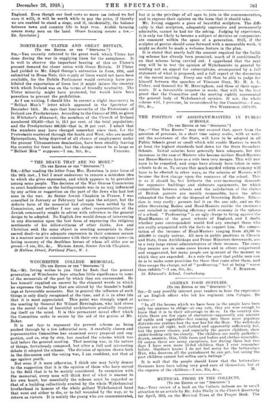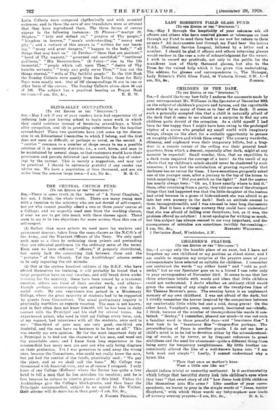METRICAL PROSE IN 'HIE COLLECTS. [TO THE EDITOR OF ma"
8pscrtroa."l SIR,—Your review of a book on the Collects induces me to recall attention to an article by Mr. John Shelly in the Church Quarterly for April, 1912, on the Metrical l'rose of the Prayer Book. The Latin Collects were composed rhythmically and with accented cadences; and to these the ears of our translators were so attuned that they have reproduced them. The three forms of cursus appear in the fallowing instances: (1) Planus—" martyr St. Stephen," "help and defend us," "prayers of Thy people," "kingdom in heaven," " man's understanding," "mercy and pity "; and a variant of this occurs in "written for our learn- ing," "many and great dangers," "happen to the body," "all things that may hurt us." (2) Tardits—" -them that are penitent."' "hand of Thy majesty," "governed and sanctified," "continual godliness," "His Resurrection." (3) Yelox—" rise to the life immortal," "people which call upon Thee," "desire of Thy humble servants," "truly and godly serve Thee," "lose not the things eternal," "wills a Thy faithful people." In the 1549 Book the Sunday Collects were. mostly from the Latin; those for Holy Days were mostly new. Out of 187 olause-endings 94 are in one or 3ther form of the cursus. The Sunday Ciillects alone, show 80 out if 148. The subject has a practical bearing on Prayer Book



























 Previous page
Previous page